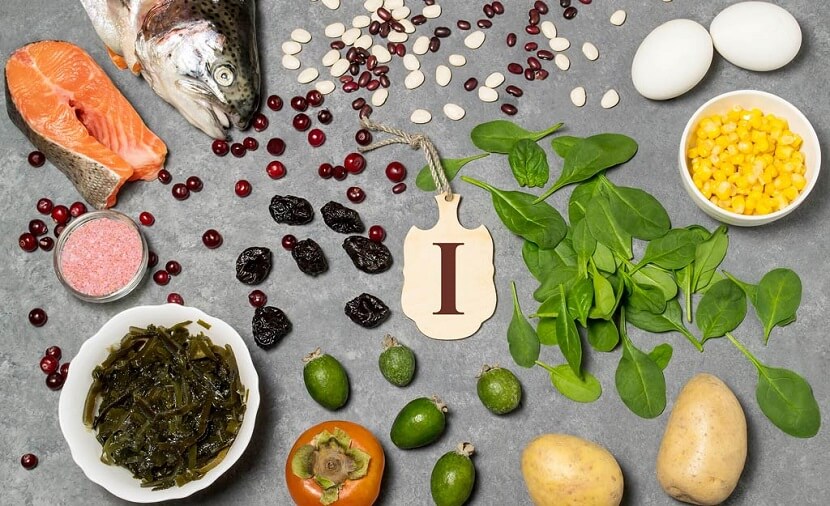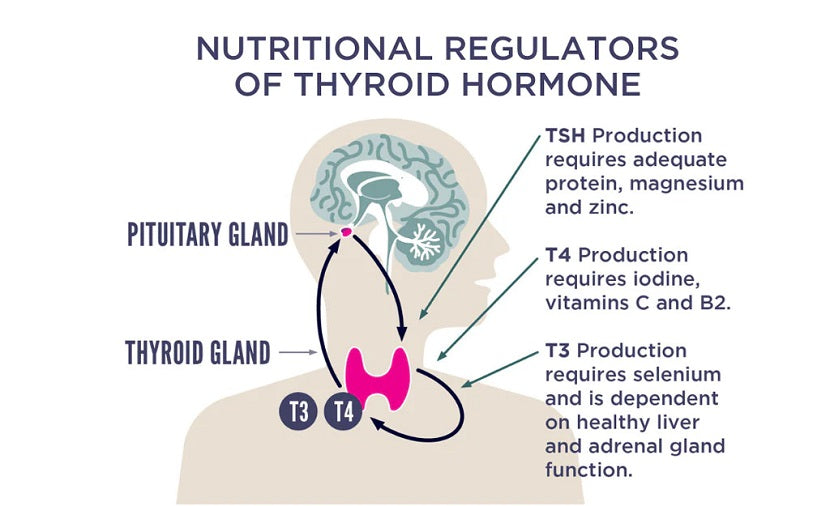Why is iodine so important?
Iodine is a mineral that helps with immunity, detoxification, and mitochondrial regulations (energy in the body). All tissues in the body need iodine and that includes every single cell and organ, particularly the brain and thyroid glands. And for females – big drum roll here – the ovaries, uterus, and breasts.
Breast tissue has a greater concentration of iodine than the thyroid and the same iodine-transporting proteins used by the thyroid gland. In healthy breast tissue, iodine offers many antioxidant benefits.
Did you know iodine also helps with ovulation and hormones?
The ovaries naturally contain more iodine than any other organ except the thyroid. Therefore, women need adequate iodine in the ovaries to have healthy ovulation. Iodine also reduces ovulation pain, prevents ovarian cysts, and helps boost progesterone.
How does a lack of iodine cause painful breasts?
One cause can be fibrocystic breast disease where hormonally-influenced cysts develop in the breast tissue. These cysts, which can cause breast pain and tenderness especially before menstruation, are fairly easy to detect just by self-examination.
Without adequate iodine, breast tissue is susceptible to oestrogenic stimulation. This can result in the production of microcysts which can then lead to fibrocystic breast disease.
What can I do if I am iodine-deficient?
Studies have shown that over 40% of the world’s population is iodine deficient. The biggest cause can be attributed to iodine-depleted soil everywhere, which isn’t exactly a new phenomenon. In fact, this is the main reason why salt was 'iodized' nearly a century ago. Nevertheless, iodine deficiency still remains as one of the main contributors to health issues worldwide these days.
Iodine has been added to salt in the form of potassium iodide since 1924.
Here are a couple of things you can do to normalise iodine levels in the body:
-
Increase consumption of iodine-rich foods.
Sea vegetables, shellfish such as oysters and prawns, eggs, and fish are all good sources of iodine.
-
Supplement with iodine, which is best done with the guidance of a practitioner.
Iodine supplements can have excellent benefits. You can get liquid or capsulated iodine, or use it topically. The recommended daily allowance (RDA) for iodine is only 100–150 mcg per day*, which is actually quite low. I script with some ladies up to 2000 mcg per day (but best to work with a practitioner for higher doses). Some doctors even script as high as 50,000 mcg per day (with strict monitoring).
*If you have thyroid issues (Hashimoto’s), it’s best to stay under 250 mcg per day.
Sore, tender breasts can significantly impact a woman's quality of life, but understanding the link to iodine deficiency provides a pathway to relief. A nutrient-dense diet rich in seaweed, yogurt, eggs, and iodized salt can support thyroid health and hormonal balance.
Adequate iodine uptake promotes antioxidant activity within the body and can help with cyclic breast pain and fibrocystic breast disease. For many women struggling with sore breasts, revamping their plate proves an effective, sustainable solution that also bolsters overall vitality.
Why not harness the power of strategic nourishment with our latest HAPPY HEALTHY YOU guide? Just click on the image below to learn more!
REFERENCES
Moreno-Vega et al. Adjuvant Effect of Molecular Iodine in Conventional Chemotherapy for Breast Cancer. Randomized Pilot Study. Nutrients. 2019 Jul; 11(7): 1623.
https://www.ncbi.nlm.nih.gov/pmc/articles/PMC6682905/
Shaohua He et al. Iodine stimulates estrogen receptor singling and its systemic level is increased in surgical patients due to topical absorption. Oncotarget. 2018 Jan 2; 9(1): 375–384.
https://www.ncbi.nlm.nih.gov/pmc/articles/PMC5787473/









Leave a comment
This site is protected by hCaptcha and the hCaptcha Privacy Policy and Terms of Service apply.